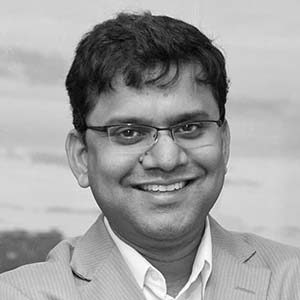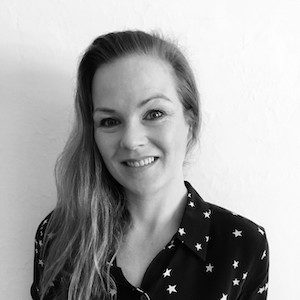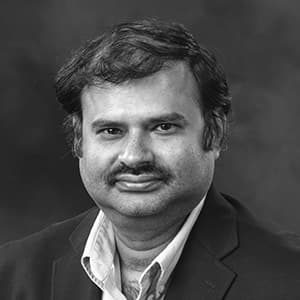
Fragile Earth 2022
AI for climate mitigation, adaptation, and environmental justice

Since 2016, the Fragile Earth Workshop has brought together the research community to find and explore how data science can measure and progress climate and social issues, following the framework of the United Nations Sustainable Development Goals (SDGs).
Fragile Earth 2022: AI for Climate Mitigation, Adaptation, and Environmental Justice was a workshop that took place as part of the ACM's KDD 2022 Conference on research in knowledge discovery and data mining and their applications.
Fragile Earth 2022
Dates: August 15, 2022
KDD Conference August 6-10th
Venue: Washington DC Convention Center
Contact:
Papers
- GaLeNet: Multimodal Learning for Disaster Prediction, Management and Relief - Best Paper
- CIMF - Climate Impact Modelling Framework - Best Paper Runner Up
- Urban Forests for Carbon Sequestration and Heat Island
- Robustness of Urban Coastal Rail Network Under Projected Future Floods
- Multi-fidelity Hierarchical Neural Processes for Climate Modeling
- Feature Scaling and Attention Convolutions for Extreme Precipitation Prediction
- Evaluation of Surface Runoff Projections from Earth System Models in Major Basins of the World
- Estimation of Nearshore Water Depth Using Physics-Informed Deep Learning
- AI Enabled Decarbonization Framework
- A Multi-Perspective Content Analysis Platform for Sustainability Assessment
Workshop Schedule
Workshop Schedule
Background Info
Since 2016, the Fragile Earth Workshop has brought together the research community to find and explore how data science can measure and progress climate and social issues, following the framework of the United Nations Sustainable Development Goals (SDGs). Over the years, Fragile Earth workshop has focused on SDGs. This year we also focus on Environmental Justice, which in the scope of scientific research can be defined as the effort to “document and redress the disproportionate environmental burdens and benefits associated with social inequalities” (Chakraborty et. al 2016), as well as SDG 13: Climate Action.
In 2021, the Intergovernmental Panel on Climate Change (IPCC) released their report on “physical science basis” stating that climate change was caused “unequivocally” by human action, while in 2022, they followed that up with their latest report on “impacts, adaptation and vulnerability” emphasizing that the time for action is now. These reports, parts of the Sixth Assessment Report (AR6), provide new estimates of the chances of crossing global warming thresholds, discuss the urgent need for adaptation pathways, and find that unless there are immediate, rapid, and large-scale reductions in greenhouse gas emissions, limiting warming will be beyond reach. The ramifications of these climate scenarios are devastating for the planet. As we fail to reach mitigation and adaptation targets, we will witness the triggering of more frequent sweltering heat waves, stronger storms, higher floods, severe droughts, and drastic ecosystem shifts, with disastrous consequences for human lives, economies and health, as well as biodiversity.
The application problems and agenda of interest include the Sustainable Development Goals, accelerating progress on the United Nations’ 2030 agenda, envisioning solutions for climate mitigation and adaptation, and measuring and diminishing the inequitable benefits and burdens across socioeconomic groups. In particular, the workshop has maintained a strong focus and community in the following areas: food security, sustainable agricultural practices and supply chains, ecosystem restoration, water management, sustainable energy, climate action and adaptation, socioeconomic equality, and disaster resilience. In our Fragile Earth Workshop, we invite ML and AI researchers, social and behavioral scientists, as well as natural scientists and engineers, to convene and discuss interdisciplinary solutions for progress towards the SDGs, Environmental Justice, and climate change mitigation and adaptation.
8:00-9:30 Session 1: Mitigation and Adaptation
8:00-8:10: Welcome
8:10-9:30: Paper session 1 (20 minutes x 4 papers)
Paper 1: Urban Forests for Carbon Sequestration and Heat Island Mitigation
Authors: Levente Klein and Conrad Albrecht
Paper 2: AI-Enabled Decarbonization Framework
Authors: Ayush Jain, Manikandan Padmanaban, Jagabondhu Hazra, Ranjini Guruprasad and Heriansyah Syam
Paper 3: *BEST PAPER RUNNER UP* CIMF – Climate Impact Modelling Framework
Authors: Blair Edwards, Paolo Fraccaro, Nikola Stoyanov, Nelson Bore, Julian Kuehnert, Kommy Weldemariam and Anne Jones
Paper 4: A Multi-Perspective Content Analysis Platform for Sustainability Assessment
Authors: Lipika Dey, Tirthankar Dasgupta, Abir Naskar, Tushar Goel, Ishan Verma, Vipul Chauhan, Uma M N and Rajkumar Pallikuth
9:30-10:00: Coffee break
10:00-12:00 Session 2: Disaster Prediction, Impact Modeling
10:00-10:45: Keynote 1 – Dr. Zhe Jiang: Embracing the New Opportunities and Challenges of AI in Geo-domains: An Illustrative Example in Observation-based Flood Inundation Mapping
Prof. Zhe Jiang is an assistant professor in the Department of Computer & Information Science & Engineering at the University of Florida, where he is also affiliated with the Center for Coastal Solutions. He received his Ph.D. in Computer Science from the University of Minnesota and a B.E. in Electrical Engineering from the University of Science and Technology of China. His research interests include data mining, machine learning, and artificial intelligence, with a particular focus on spatiotemporal data mining for interdisciplinary applications in hydrology, disaster management, monitoring coastal hazards, etc. His research has been sponsored by multiple federal agencies (e.g., NSF, USGS, NOAA, UCAR) and industry companies. He is a senior member of IEEE.
10:50-11:50: Paper session 2 (20 minutes x 3 papers)
Paper 1: Robustness of Urban Coastal Rail Network Under Projected Future Floods
Authors: Ashis Kumar Pal, Puja Das, Nishant Yadav and Auroop R. Ganguly
Paper 2: *BEST PAPER* GaLeNet: Multimodal Learning for Disaster Prediction, Management and Relief
Authors: Rohit Saha, Azin Asgarian, Mengyi Fang, Angeline Yasodhara, Kyryl Truskovskyi, Daniel Homola, Raahil Shah, Frederik Dieleman, Jack Weatheritt and Thomas Rogers
Paper 3: Evaluation of Surface Runoff Projections from Earth System Models in Major River Basins of the World
Authors: Puja Das and Auroop R. Ganguly1
12:00-1:00: Lunch
1:00-3:00 Session 3: Topics in Climate Modeling
1:00-1:45: Keynote 2 – Keynote from Forrest Hoffman, Oak Ridge National Laboratory.
- Forrest M. Hoffman is a Distinguished Computational Earth System Scientist and the Group Leader for the Computational Earth Sciences Group at Oak Ridge National Laboratory (ORNL), where he develops and applies Earth system models (ESMs) to investigate the global carbon cycle and feedbacks between biogeochemical cycles and the climate system. Forrest also applies data mining and machine learning methods using high performance computing to problems in Earth system modeling, landscape ecology, ecohydrology, remote sensing, and large-scale climate data analytics. Forrest is a Fellow of the American Association for the Advancement of Science (AAAS).
1:50-2:50: Paper session 3 (20 minutes x 3 papers)
Paper 1: Multi-Fidelity Hierarchical Neural Processes for Climate Modeling
Authors: Dongxia Wu, Matteo Chinazzi, Alessandro Vespignani, Yi-An Ma and Rose Yu
Paper 2: Estimation of Nearshore Water Depth Using Physics-Informed Deep Learning
Authors: Nan Wang and Qin Chen
Paper 3: Feature Scaling and Attention Convolutions for Extreme Precipitation Prediction
Authors: Weichen Huang
3:00-3:30: Coffee break
3:30-5:00 Session 4
3:30-4:10: Keynote 3 – Dr. Rose Yu: Accelerating Climate Model Simulation with Physics-Guided Deep Learning
- Dr. Rose Yu is an assistant professor at the University of California San Diego, Department of Computer Science and Engineering. Her research focuses on advancing machine learning techniques for large-scale spatiotemporal data analysis, with applications to sustainability, health, and physical sciences. A particular emphasis of her research is on physics-guided AI which aims to integrate first principles with data-driven models. Among her awards, she has won NSF CAREER Award, Faculty Research Award from JP Morgan, Facebook, Google, Amazon, and Adobe, Several Best Paper Awards, Best Dissertation Award at USC, and was nominated as one of the ’MIT Rising Stars in EECS’.
4:10-5:00: Panel- Climate Adaptation, Mitigation & Justice Discussion
- A lively discussion regarding academic and industry research to support solutions toward climate adaptation, mitigation and justice.
- Panelists:
- Kommy Weldemariam, IBM
- James MacCarthy, World Resources Institute
- Christopher Rackauckas, MIT
- Forrest Hoffman, Oak Ridge National Laboratory
List of Topics
The Workshop will target both methodological and applied research agenda within these areas of investigation.
- Domains of interest include but are not limited to:
- food security, sustainable agricultural practices and supply chains, ecosystem restoration, water management, sustainable energy, climate action and adaptation, socioeconomic equality, and disaster resilience
- innovations in data science and predictive modeling, applied to earth sciences
- investigations centering sustainability, including but not limited to environmental justice
- data-informed climate change and resource management policy discussions
- carbon removal technologies
- easily usable and publicly available data+model+frameworks (possibly challenge problems) based on satellite/drone data to monitor and predictively model the fragile earth
- natural catastrophes under a changing climate ranging from improved modeling to development of resilient infrastructures
- economic/quantitative characterization of climate change risk and associated incentives towards policy/decision making.
- The methodological topics of interest are relevant areas of KDD, including but not limited to:
- the integration of physics into data-driven modeling
- the use of machine learning to enhance physical simulations
- model explainability, uncertainty quantification, privacy and fairness questions in environmental modeling
- causal learning in complex physical world as foundations for model trustworthiness
- ML applications at low energy edge devices
- frameworks for helping the scientific and KDD communities to work together
- combining predictive and prescriptive tasks
- multi-agent systems for participatory modeling that integrate stakeholders into knowledge creation and decision processes.
- Any other topics related to the themes of the workshop are welcome!
Organizers

Naoki Abe

Auroop Ganguly

Emre Eftelioglu

Bistra Dilkina

Kathleen Buckingham

Ramakrishnan Kannan

James Hodson

Lindsey Asis

Rose Yu
Share this Page
Get Involved
Join our efforts to unlock AI’s potential towards serving humanity.
Support us
Become a Partner
Volunteer with us
Newsletter


